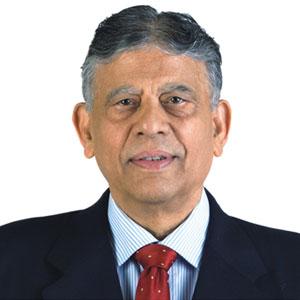The one-size-fits-all approach to decide on allocation of risks for stakeholders under PPP Model Concession Agreements (MCAs) needs to be scrapped, according to the report of a committee tasked with reviewing the public private partnership (PPP) model to execute infrastructure projects.
The panel, headed by former finance secretary Vijay Kelkar, was set up after finance minister Arun Jaitley in the budget speech this year announced a complete overhaul of the PPP model. The panel had submitted its report on November 19 but was made public on Monday.
Here are 10 key takeaways from the Kelkar panel report:
1. The panel suggested a review of risk assessment based on models developed by the Department of Economic Affairs or some regulatory body. It also recommended formation of a 3P India committee that can function as a centre of excellence in PPPs, enable research, review, roll out activities to build capacity, and support more nuanced and sophisticated models of contracting and dispute redressal mechanisms.
2. The panel recommended amending the Prevention of Corruption Act to only prosecute corruption cases and not cases of errors, allowing bureaucrats a free hand to clear projects.
3. It suggested evolving structured capacity building programmes for different stakeholders, including implementing agencies, and customised programmes for banks and financial institutions and private sector.
4. The panel laid out a framework to set up independent regulators for sub-sectors within infrastructure in the PPP framework.
5. It recommended that laws should be made to protect the private sector against “obsolescing bargaining” so that a developer doesn’t lose bargaining power related to tariffs and other matters in case there are abrupt changes in the economic or policy environment that are beyond control.
6. The panel recognised the problem of stressed assets in the infrastructure sector and suggested setting up of an Infrastructure PPP Adjudication tribunal (IPAT) and an Infrastructure PPP Project Review Committee (IPRC) to deal with stressed projects. It suggested cancelling projects that do not get a prescribed percentage of progress. Such projects should be sent for rebidding or completed them with public funds.
7. The panel asked for equity in completed, successful infrastructure projects to be divested by offering to long-term investors, including overseas institutional investors. The cash generated out of divestment of equity should be used for new infrastructure projects.
8. The committee recommended encouraging banks and financial institutions to issue deep-discount bonds, or zero coupon bonds, to lower debt servicing costs and to enable authorities to charge lower user charges in initial years.
9. It welcomed the changes to the Arbitration Act but endorsed the need for time limits on hearing. World Bank data suggest that the length of arbitration in India is 569 days, compared with the OECD average of 335 days.
10. The committee also stipulated PPP contracts to have clearly articulated dispute resolution structures so that cases are resolved in a timely manner.






